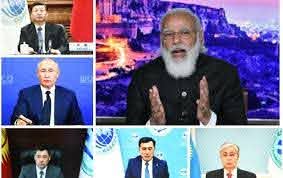World
Pakistan to import fuel worth $400 mn

Islamabad: Pakistani Prime Minister Nawaz Sharif has ordered the finance ministry to urgently arrange for PKRs.4,000 crore (nearly $400 million) to import petrol and furnace oil for two months in the wake of the fuel crisis that has hit the country, a media report said Friday.
Dawn said Sharif asked the finance ministry Thursday to arrange for the money to import at least 10 shiploads of petrol and furnace oil.
A senior official in the petroleum ministry said the government’s efforts helped to normalise petrol supplies in Lahore, Faisalabad and Rawalpindi but conceded that smaller towns in Punjab province and major towns in Pakistani Kashmir were still facing acute shortages.
“Obviously, the government’s top priority is to minimise the hardship of (the) large population,” the official said, adding that it would take some time to completely restore supplies across the country.
A senior official in Lahore told Dawn that supplies in the city were largely normal because supplies meant for smaller towns were diverted to the provincial capital.
Although supplies in the country’s Islamabad were normal, queues of vehicles were seen at pumps in Rawalpindi, where each vehicle was getting 10-15 litres of fuel.
The owner of a Pakistan State Oil (PSO)-franchised fuel station in Pakistani Kashmir’s Rawalakot said no petrol tanker had come to the station since Jan 17 and almost all other pumps were facing the same problem.
According to officials, the prime minister was informed that out of the PKRs.1,700 crore (nearly $170 million) released by the finance ministry a few days ago, PKRs.1,500 crore (nearly $150 million) were provided to the PSO for onward clearance of letter of credit payments by the National Bank of Pakistan.
This helped the PSO arrange two ships of petrol, one of which is due to reach Karachi Jan 26.
The prime minister was also informed that with sales of about 190,000 tonnes of petrol expected in February, arrangements have been made to import 230,000 tonnes, besides local supplies that would leave around 120,000 tonnes of closing stock February 28 – enough for a surplus coverage of over 15 days.
Two PSO shipments of about 100,000 tonnes of petrol are expected to arrive Jan 26 and 29 respectively. Another ship with 32,000 tonnes would reach Karachi Jan 26. Shell Pakistan’s ship carrying 29,000 tonnes of petrol will reach the port Jan 29.
The PSO was also asked to increase its daily supply of petrol from 7,000 tonnes to 8,500 tonnes from Jan 26 to Feb 3 to avoid any recurrence of shortages.
Acting Petroleum Secretary Arshad Mirza said reasonable stocks of furnace oil have been arranged to avert any increase in load shedding.
World
Lockdowns in China Force Urban Communities to Defy Censorship and Vent Frustration Online

Shanghai’s rich middle class is leading a wave of online dissent over the strict and prolonged lockdowns imposed in various parts of the country. Chinese internet censorship is struggling as patience is wearing thin in many urban centers, coming up with creative forms of online protests.
Social Media Posts Revealing Lockdown Tension in Shanghai
Drawn-out lockdowns are nothing new in China as authorities insist with the nation’s zero-Covid policy since the start of the pandemic. Currently over This time around, however, metropolitan areas like Shanghai are increasingly difficult to keep quiet, given that its more than 25 million residents have seen weeks of total isolation along with food shortages and many other service interruptions.
Dozens of towns and reportedly over 300 million Chinese citizens have been affected by lockdowns of different severity. As expected, urban netizens have been most outspoken over their difficulties by finding creative ways to get around state censorship and bans placed on topics, news comments and spontaneous campaigns.
Shanghai residents have been using mobile proxies and hijacking seemingly unrelated hashtags to talk about healthcare issues, delivery failures and the overall severity of their situation. The “positive energy” that the Chinese government wants to transmit during the recent prolonged series of lockdowns does not come naturally to those counting food supplies and online censors are working hard to filter words, trending topics and undesired social media sharing.
WeChat groups and message threads are under constant monitoring. Posts questioning the zero-Covid approach have been quickly deleted, including by leading Chinese health experts like Dr. Zhong Nanshan. Video footage is soon censored and protests and investigations are quickly made to disappear.
Where this has not worked, officials have exposed banners with warnings and outright threats like “watch your own mouth or face punishment”, while drones have been patrolling the city skies. Yet, if anything, this has led to further tensions and unspoken confrontation with Shanghai’s educated and affluent middle class.
Creative Online Solutions Harnessing Civic Energy
Announcements by Chinese social media that they would be publishing the IP addresses of users who “spread rumors” have not helped either. Tech industry research has shown that much of Asia’s tech-savvy population has a habit of using mobile proxies and other privacy tools, quickly finding workarounds to browse the internet freely and talk to the world about the hottest topics.
The sheer volume of forbidden posts is already a challenge for the very censorship system, experts explain. Unable to track all trending hashtags, state workers overlook topics that speak about the US, Ukraine or other popular news. Linking human rights elsewhere to their situation, Chinese online dissidents establish their informal channels and “hijack” the conversation to share personal or publicly relevant information about the Covid suppression in their town.
Sarcastic and satirical posts still dominate. Others hope to evade the censors by replacing words from famous poems or the national anthem. One thing is certain – social media, when harnessed with the right creativity, has proven its ability to mount pressure on the government in even some of the most strictly controlled tech environments like China.























